In recent years, the Thanh Hoa Farmers' Association has implemented many livestock linkage programs to support members in developing household economy . One of the typical models is the hybrid chicken linkage program, implemented in Thanh Ky and Xuan Thai communes. This model helps farmers have more stable livelihoods and develop livestock in a sustainable direction.
The family of Ms. Lo Thi Hanh, born in 1969, in Bai Sim village, Thanh Ky commune, is one of the households that benefited from this program. Many years ago, despite having a garden area of about 3,500 m² and 5 hectares of hills behind the house, favorable for raising poultry, Ms. Hanh's family still struggled to choose suitable livestock. Previously, she used to raise sugarcane chickens, but the economic efficiency was not high due to high feed costs, chickens often got sick, high loss rate, and unstable output. As a near-poor household in the commune, Ms. Hanh and her husband tried to give up raising livestock many times because of prolonged losses.
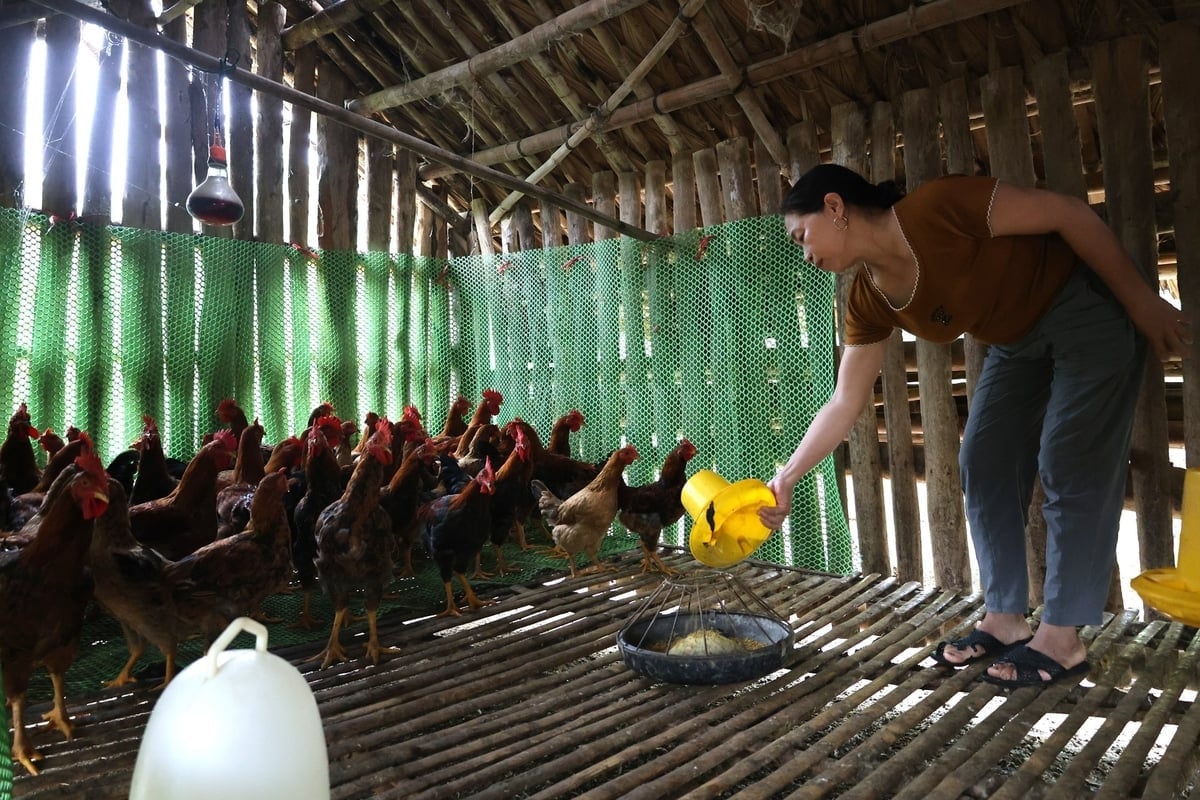
Ms. Lo Thi Hanh has been raising hybrid chickens since 2023. Photo: Thanh Tam.
In June 2023, thanks to the support of the Thanh Hoa Farmers' Association through the hybrid chicken breeding program, Ms. Hanh's family was provided with 100 quality hybrid chicken breeds. At the same time, they were trained by agricultural extension officers in breeding techniques, disease prevention and treatment.
“At first, I was worried because raising sugarcane chickens was not effective before, but the Farmers' Association gave me detailed instructions on how to brood chicks, mix feed, and vaccinate them, so I felt more secure. The hybrid chicken breed is healthy, has few diseases, grows fast, and can eat natural food, making it suitable for grazing conditions in the hills,” Ms. Hanh shared.
After nearly 4 months of raising, the chickens grew well, with a survival rate of over 95%. Thanks to taking advantage of available food sources from the family's agricultural production such as rice, corn, and cassava, raising costs were significantly reduced.
When ready to sell, each pig reaches an average weight of 2.5 kg. With a selling price of 100,000 VND/kg, after deducting expenses, Ms. Hanh earns 15 million VND, because the food is taken advantage of from the family's agricultural production.
Seeing the obvious results, Ms. Hanh decided to regularly raise the herd again, because the Chien Hai restaurant in the commune had consumed all the products. Ms. Hanh's family also escaped poverty and had a stable economy from raising livestock and growing acacia.
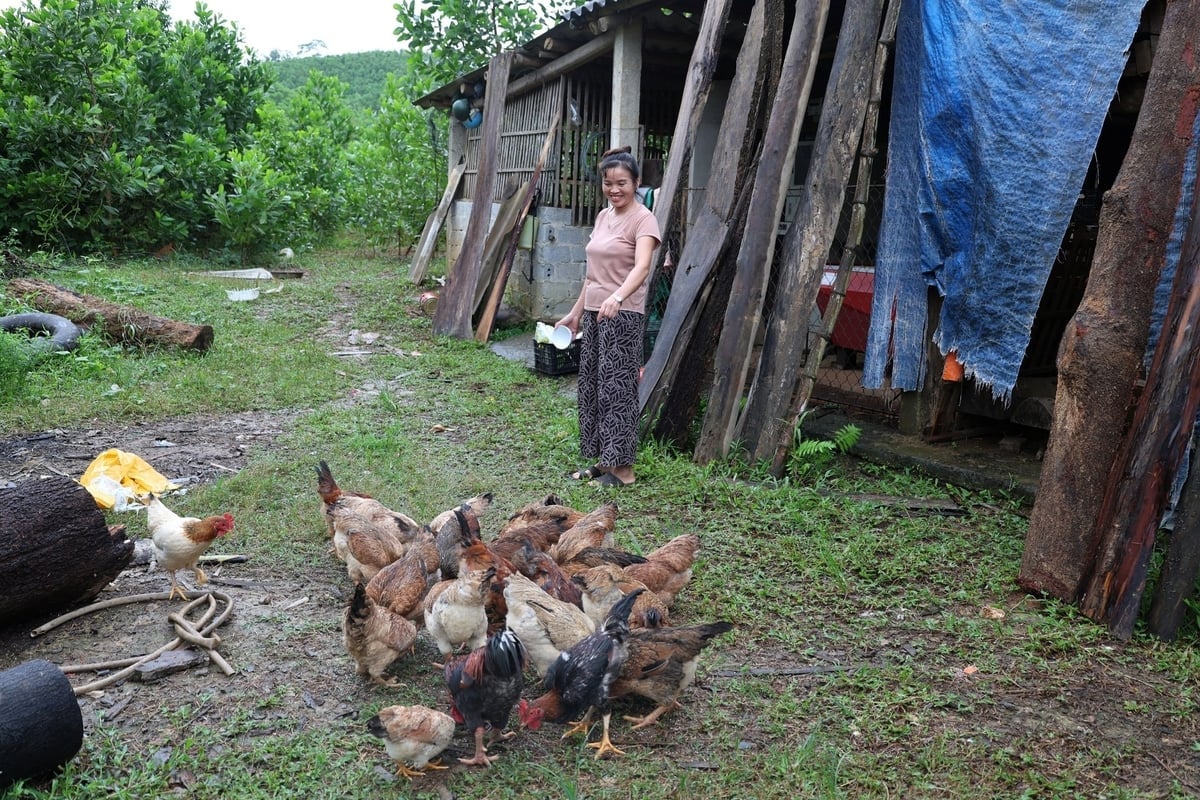
Many households keep mother hens for breeding and re-flocking. Photo: Thanh Tam.
According to Ms. Lo Thi Lan, Chairwoman of Thanh Ky Commune Farmers' Association, the program of raising hybrid chickens supported by the Provincial Farmers' Association has created positive changes in the awareness and practices of many members. Hybrid chickens are a breed with good adaptability, delicious meat quality, and easy to consume. In particular, when households are instructed in biosafety farming techniques, disease prevention is more effective, productivity and income both increase.
“In 2023, Thanh Ky commune will have 69 households supported with breeding chickens, with a total flock of 6,900 hybrid chickens. Households are linked in a cooperative, with support in breeding, techniques and product output. Up to now, basically all households have restored their flocks and maintained stable raising,” Ms. Lan added.
The family of Mr. Phan Cong Dung, head of Lang Lung village, Xuan Thai commune, is one of the typical examples of economic efficiency from the chicken farming model that takes advantage of available food sources.
In 2023, Mr. Dung's family was supported with 100 breeding chickens. Instead of selling them all, he kept the mother chickens to breed and re-flock, ensuring a source of quality chickens for the next batches.
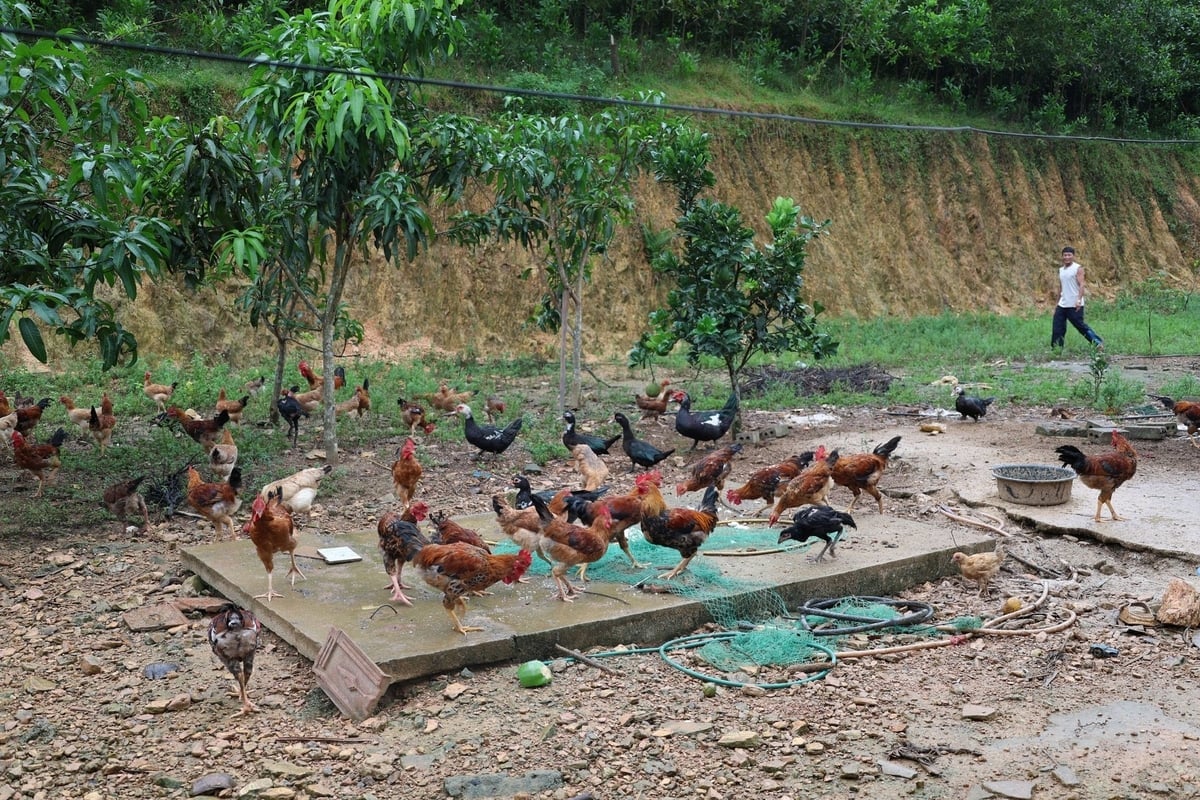
Mr. Dung's crossbred chickens are raised on hills and fed rice bran and alcohol residue, so their meat is firm and delicious. Photo: Thanh Tam.
With the advantage of his family being in the rice milling and wine making business, Mr. Dung can utilize corn bran, rice bran and wine lees as chicken feed. Thanks to that, the cost of feed is significantly reduced.
Mr. Dung applies the method of raising chickens in alternating seasons, raising about 100 chickens per batch and maintaining it continuously throughout the year. Thanks to that, each year his family sells nearly 1,000 chickens to the market, with a selling price of 120,000 VND/kg and a profit of 60,000 VND/kg.
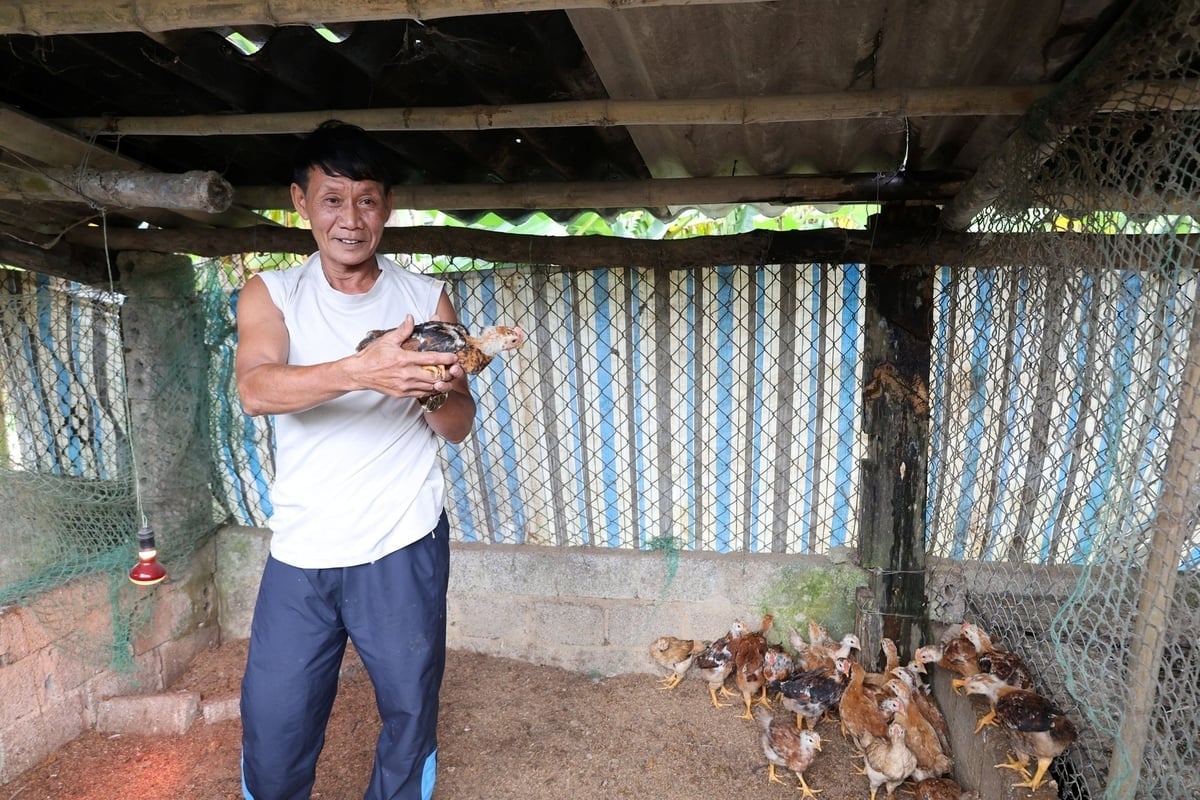
Mr. Dung raises chickens in alternating seasons to have chickens to sell all year round. Photo: Thanh Tam.
Mr. Dung raises each batch of chickens for 5 months to ensure the chicken meat is tough and delicious, meeting market demands.
"In 2023, Xuan Thai commune will have 59 households supported with breeding chickens, with a total of 5,900 chickens. This is an opportunity for many households to develop sustainable livestock farming and improve their family economy," said Mr. Quach Duc Long - Chairman of the Farmers' Association of Xuan Thai commune.
Mr. Dung shared: By taking advantage of available food sources, each batch of chickens not only reduces costs but also ensures the quality of meat for consumers. Combining traditional farming models and local resources is very suitable for the conditions of the mountainous commune of Xuan Thai.
From an initial support program, the hybrid chicken farming model is gradually becoming a sustainable economic development direction for the people of the mountainous communes of Thanh Ky and Xuan Thai, Thanh Hoa province. This is also the premise for the commune to continue to replicate the model, aiming at sustainable livestock development and suitable to the practical conditions of the locality.
Source: https://nongnghiepmoitruong.vn/ho-tro-ga-giong-giup-cac-ho-chan-nuoi-ben-vung-d782558.html








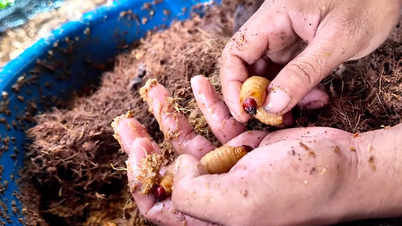

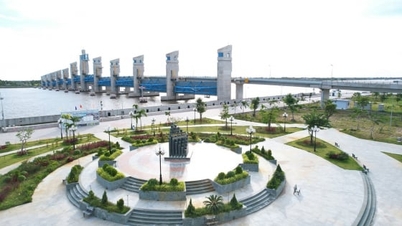
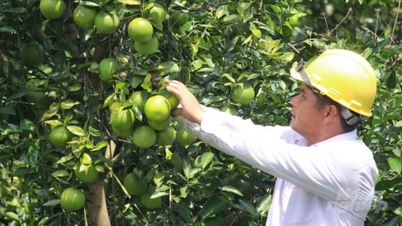








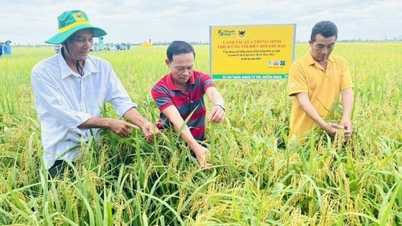
![Dong Nai OCOP transition: [Part 2] Opening new distribution channel](https://vphoto.vietnam.vn/thumb/402x226/vietnam/resource/IMAGE/2025/11/09/1762655780766_4613-anh-1_20240803100041-nongnghiep-154608.jpeg)











































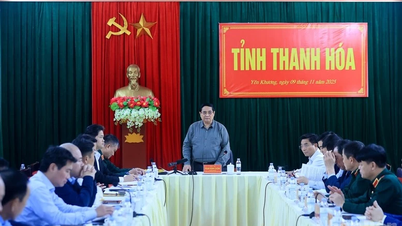








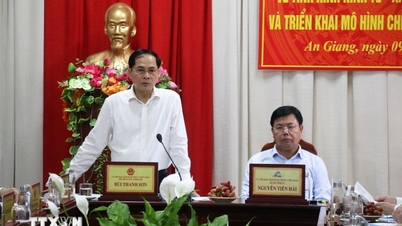



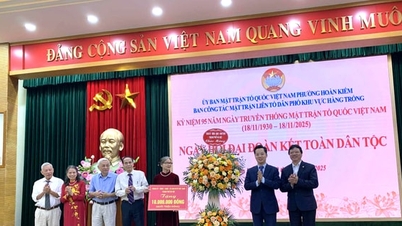



















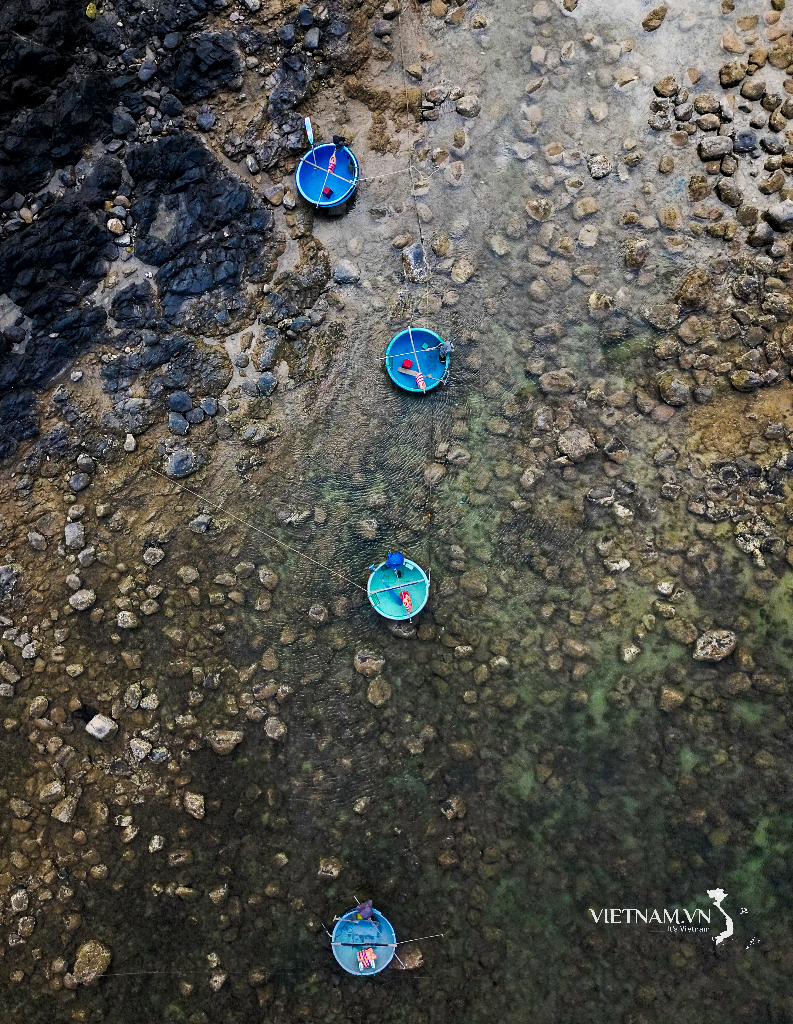

Comment (0)